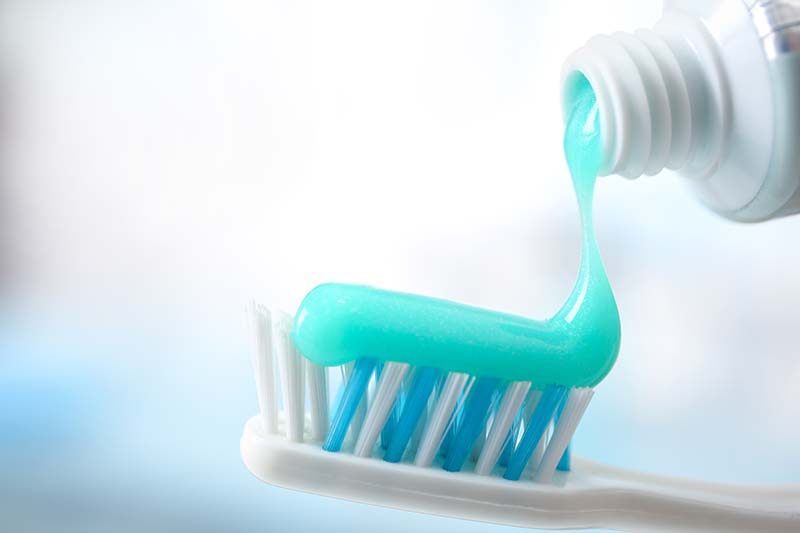
by Roseman Dental | Jul 20, 2016 | Dental Clinic Blog, Oral Health, Roseman Dental - NV, Roseman Dental - UT
To keep your pearly whites as brilliant as possible, you can use the usual whitening methods: expensive professional treatments, gum, toothpaste, and mouthwash. There are also simple, everyday habits that can help brighten your smile. Your teeth not only help you speak and eat, but they contribute to your overall appearance. Here are the top three tips to help you keep your teeth sparkling white.
- Replace your toothbrush. Make sure to replace your electric toothbrush head or manual toothbrush every two to three months, or more often if you’ve had a cold. The bristles of the brush transfer germs to your mouth. Also, brush your teeth properly by placing the toothbrush against your gums at a 45-degree angle and lightly move it in a circular motion, not back-and-forth. Hold your toothbrush as you do a pencil so you don’t scrub too vigorously.
- Gargle before brushing with apple cider vinegar. Rinsing with apple cider vinegar in the morning before brushing helps remove stains and whiten your teeth. It will also kill germs lurking on your gums and in your mouth.
- Avoid teeth-staining food. Smoking cigarettes and drinking black tea, cola, and red wine will stain your teeth. Any food or drink that is dark will probably result in stains. Brushing immediately after drinking or eating dark-colored food or drinks can help. You can also use an effective teeth-whitening product from your dentist or over-the-counter.
Eat an apple, also known as nature’s toothbrush, for convenient teeth cleaning action. Crisp, firm foods help clean your teeth while you are eating them, such as popcorn, celery, and raw carrots. For best results, choose these options as the final food in your meal if you won’t be able to brush your teeth right after eating. You’ve worked hard to get your teeth white, so make sure to take the steps necessary to keep them that way.

by Roseman Dental | Jul 13, 2016 | Dental Clinic Blog, Dental School, Roseman Dental - NV, Roseman Dental - UT
Becoming a dentist can result in an abundance of professional possibilities. Besides private practice options, dental school graduates can teach future dentists, travel with international health and relief organizations, work in hospital emergency rooms, or conduct advanced laboratory research.
Choosing a Dental School
There are over 65 dental schools in the United States accredited by the ADA’s Commission on Dental Accreditation. Each program is meticulously assessed to ensure compliance with quality and content standards. Typically, DMD and DDS programs take four years to complete. Additional years are necessary for dental specialties such as Pediatric Dentistry and Oral and Maxillofacial Surgery. When choosing a dental school, factors to consider include:
• Grading system
• Geographical location
• Combination programs
• Student-to-faculty ratio
• Required laboratory work
• Community-centric vs. larger, clinical experience
Admission to dental school is highly competitive, but the application process is straightforward. In fact, many U.S. dental schools utilize the American Association of Dental Schools Application Service enabling you to submit one online application and send it to a variety of schools.
Researching Dental School Programs
Where you attend dental school is a significant decision requiring a lot of research. Start with the dental school guidebook from the American Dental Association to help you rule out certain schools that don’t meet your criteria. When narrowing down your list of dental schools, don’t rule out your ideal school right away, even if it seems out of reach due to the program cost or academic standards. It may end up being attainable with further research.
Completing the Dental School Application Process
Keep your options open and don’t make a quick decision. Before submitting your applications, make sure to narrow down your options to the dental school programs that best align with your goals and objectives. That way you can realize your dream of achieving a rewarding career as a dentist. The result is a sustainable work-life balance and competitive salary in the health care industry.
Keep Roseman University College of Dental Medicine in Mind
If you are interested in a career in dentistry, Roseman has a 4 year Doctor of Dental Medicine (DMD) degree located at our South Jordan, UT campus. The College of Dental Medicine (CODM) utilizes Roseman’s innovative Six-Point Mastery Learning Model, with courses organized in a block curriculum. Rather than competing with other students to achieve high grades on a “curve”, students work together and everyone is expected to achieve competency at a high level in order to progress through the program.
Students at Roseman CODM also experience a unique classroom setting, with interactive and immersive technology, and state-of-the-art equipment that allows students and faculty to connect using a variety of instructional techniques, moving beyond the traditional lecture format. Reimagine your future with Roseman University.


